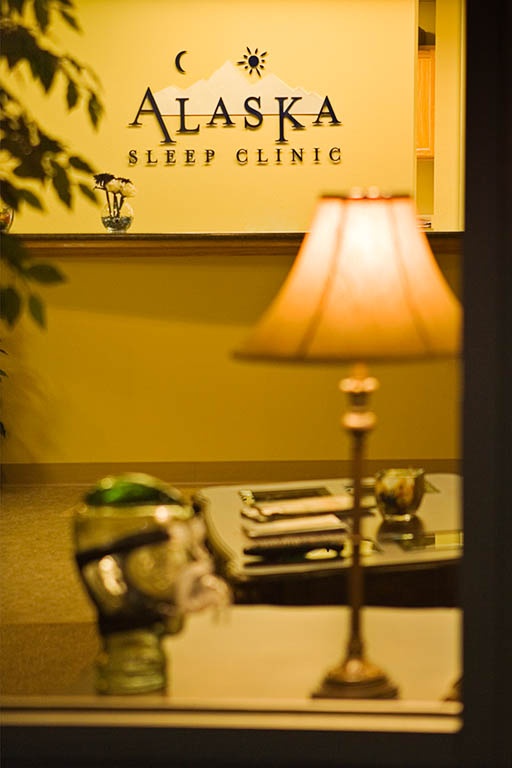
An IDTF is a diagnostic testing facility (entity) that is independent of a physician office or hospital; ie, it is not owned by a hospital, individual physician or group practice of physicians and its purpose is to furnish diagnostic tests and not to directly use test results to treat a patient.
The IDTF sleep center must provide for a supervising physician responsible for direct and ongoing oversight of the quality of the polysomnography (sleep study) test performed, proper operation and calibration of any equipment, the qualification of nonphysician personnel to operate such equipment, and supervision of that nonphysician personnel. The supervising physician must perform a general level of supervision over the operations of nonphysician personnel (click these links to learn more about sleep disorders and the types of studies used to diagnose them).
The supervising physician may not order sleep studies to be performed by the IDTF, unless the IDTF’s supervising physician is, in fact, the Medicare beneficiary’s treating physician.
An IDTF must be surveyed and approved by the Centers for Medicare and Medicaid Services (CMS) and will have its own Medicare provider number.
An IDTF located somewhere other than in a hospital building cannot share office space or equipment with a physician, physician practice, or other entity. It must remain independent.
The benefits of working with an IDTF sleep center:
Sleep centers that are set up as IDTFs and are not limited by more strict accreditation guidelines (read more about voluntary accreditation standards for sleep centers below) and may have more flexibility in providing services as requested by ordering physicians.
A large network of sleep centers, which is more likely to be an IDTF, may have more leverage from economies of scale when contracting with insurance companies and may therefore have more insurance contracts.
Things to consider:
If an IDTF provides your sleep study, typically, the supervising physician or interpreting physician may not provide a prescription for recommended therapy, like CPAP, or engage in discussion about treatment or next steps with the patient. This is the responsibility of the referring physician (in some cases, the referring physician may also interpret the sleep study).
What is a hospital-based sleep center and who is it best for?
Hospitals and health systems have historically established sleep labs within the hospital or on the hospital’s campus. Most hospital-based sleep labs have been structured as part of the hospital’s outpatient department or outpatient programs, and sleep studies are billed under the hospital’s outpatient provider number and under the Outpatient Prospective Payment System (OPPS) for Medicare patients.
The benefits of working with a hospital-based sleep center:
Increasingly, hospital-based sleep centers are able to provide services for Medicaid patients, whereas physician-run sleep centers or IDTFs may not be contracted. (Note: Alaska Sleep Clinic does accept Medicaid.)
This type of environment may be best for patients with more severe medical conditions or very young children who require one-on-one attention from healthcare providers and may need special equipment.
Things to consider:
A hospital-based sleep center may have the look and feel of a typical hospital room or it may be designed to look more like a hotel room.
A hospital-based sleep center may have a long wait time for appointments due to high demand and limited facilities.
Depending on the set-up of the sleep center, sleep studies may be interpreted by a physician that can also see you for consultation, or by an independent physician.
Different types of voluntary accreditation standards for sleep centers
It is important to make sure that the sleep center you refer to (or are referred to by your doctor or medical group) meets state standards for healthcare facilities. Additionally, there are different types of voluntary accreditations that can be obtained by sleep centers, depending on the structure of the sleep center (physician-run vs. independent) and the type of services provided. In California, most insurance companies do not require that sleep centers meet AASM or Joint Commission standards, but many require that they meet Medicare requirements.
AASM Sleep Center Accreditation
Established in 1975 as the Association of Sleep Disorders Centers, the American Academy of Sleep Medicine (AASM) is the only professional society dedicated exclusively to the medical subspecialty of sleep medicine. The AASM has a combined membership of 11,000 accredited member sleep centers and individual members, including physicians, scientists, and other health care professionals.
Since 1977, the AASM has accredited sleep facilities utilizing the AASM Standards for Accreditation of Sleep Disorders Centers. More than 2,500 sleep centers have achieved accreditation through the AASM.
AASM Standards for Accreditation of Sleep Disorders Centers include requirements such as having a board-certified sleep specialist review the information provided for all patients to evaluate for potential sleep disorders before proceeding with testing and limits to the number of patients that can be studied at one time per technologist.
Here’s a link to the AASM accreditation standards.
Why Alaska Sleep Clinic?
Alyeska International, Inc. (AI) dba Alaska Sleep Clinic is a Veteran-Owned Small Business (VOSB). Established as the first independent diagnostic testing facility (IDTF) sleep clinic in Alaska in 2002, Alaska Sleep Clinic has grown to 4 locations and 13 beds. Alaska Sleep Clinic is the most comprehensive sleep clinic in Alaska.
Alaska Sleep Clinic is honored to be named not only in the Top 20 Sleep Apnea Blogs on the web, but to be in the Top 5 for 2018 and 2019.
Alaska Sleep Clinic was honored with the BBB Torch Award for Ethics Business of the Year Award!
Alaska Sleep Clinic has the most experience with sleep Telemedicine than any other sleep lab in the state.








